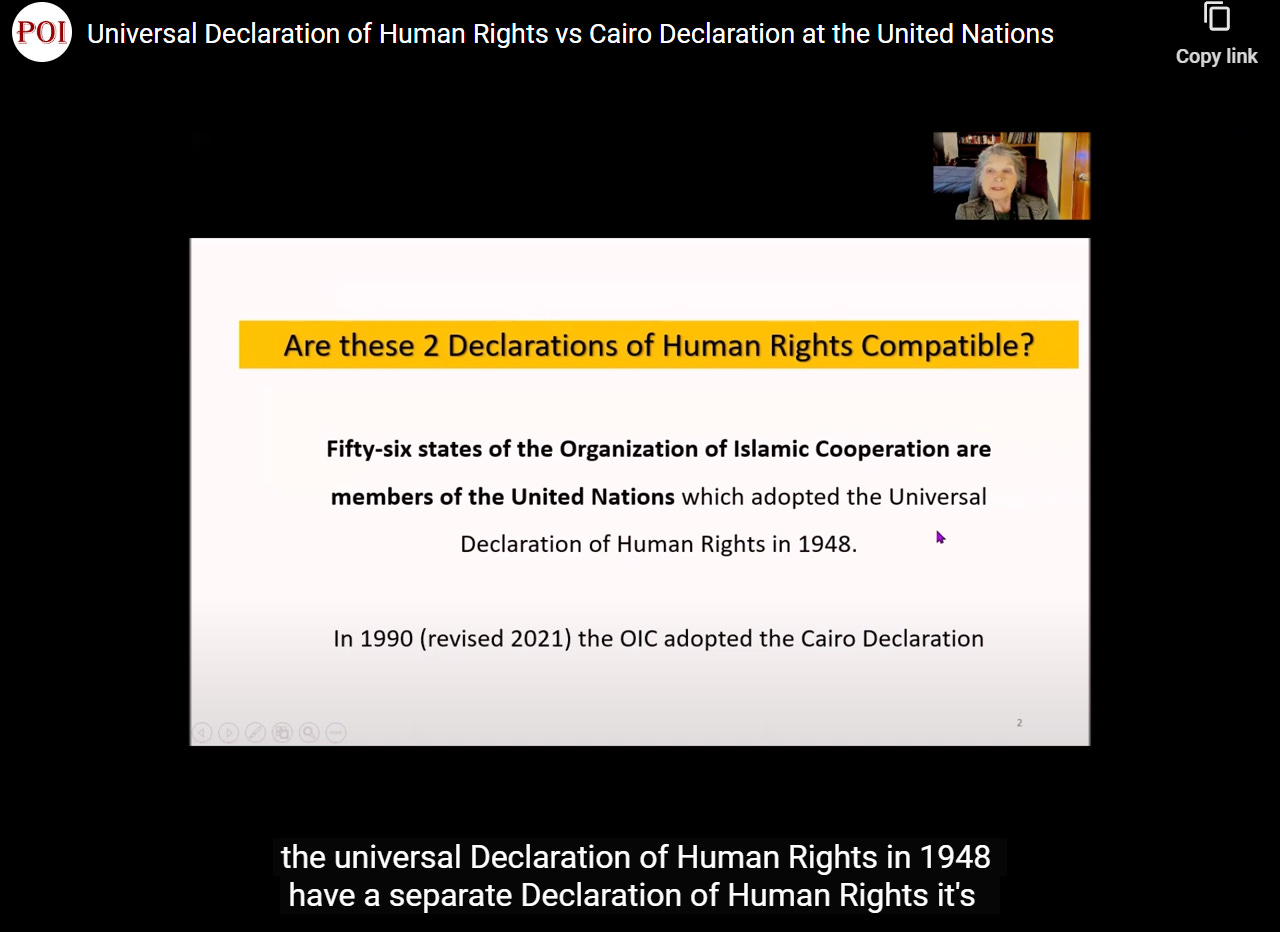How Do You Define Human Rights?
‘Iranian Rapper sentenced to death for supporting anti-hijab protests’. (i)
How do you define Human Rights? You might be surprised to discover that not everyone defines them the same way. (Please watch the video below for more detail on this very important subject.)
The Universal Declaration of Human Rights (ii) was adopted by the United Nations in 1948 – there were 50 initial member states and Iran was one of them, as was Saudi Arabia. It may have been believed in 1948 that over time, all united nations would move towards the overarching principles enshrined in that Declaration. Article 1 states that ‘All human beings are born free and equal in dignity and rights.’
That vision has not been realized, in fact many could argue that the reverse is true. For example, in spite of events such as the ‘Rapper’ – Mr. Salehi – mentioned above, Iran was appointed to chair a U.N. Human rights committee only a few months ago. (iii)
In 1990, the Organization of Islamic Cooperation (OIC) – adopted it’s own Declaration of Human Rights – the Cairo Declaration. Fifty-six members of the OIC are also members of the U.N. Articles 24 and 25 specifically stated that ‘all rights and freedoms stipulated in this document are subject to Islamic Shari’ah’, and that ‘Islamic Shari’ah is the ONLY source of reference for explanation or clarification of any of the Articles.’ (iv)
Over the last 3 decades, jihadist violence in Africa has escalated dramatically. (v) There are now sharia courts to be found all over the U.K. and in 2019, the EU protested that “Sharia councils provide alternative dispute resolution, whereby members of the Muslim community...often under considerable social pressure, accept their religious jurisdiction mainly in marital issues and Islamic divorce proceedings but also in matters relating to inheritance and Islamic commercial contracts. The Assembly is concerned that the rulings of the Sharia councils clearly discriminate against women in divorce and inheritance cases. The Assembly is aware that informal Islamic courts may also exist in other Council of Europe member States.”(vi)
In 2021, the revised ‘Cairo Declaration’ removed the word ‘Shari’ah’, replacing it with reference to Islamic ‘values and principles’ as exemplified in the ‘Charter of Medina’ and the ‘Last Sermon of Mohammed’ which ‘underpin the conception of human rights’. In other words, Sharia. (vii)
The United Nation’s Universal Declaration of Human Rights notes in the preamble that ‘a common understanding of these rights and freedoms is of the greatest importance for the full realization of this pledge.’ They could be forgiven for believing in 1948 that this pledge would be worked towards by all parties but the OIC has since adopted an entirely different pledge from that of the United Nations – one that follows Sharia.
As these two Declarations are diametrically opposed one can only ask which one will succeed and why is it that some countries can, in good conscience, subscribe to both?
Sources:
Video: Universal Declaration of Human Rights vs Cairo Declaration at the U.N.
(i) News France https://www.france24.com/en/asia-pacific/20240424-iran-sentences-popular-rapper-to-death-for-supporting-mahsa-amini-protests
(ii) Universal Declaration of Human Rights: https://www.ohchr.org/sites/default/files/UDHR/Documents/UDHR_Translations/eng.pdf
(iii) News Reuters https://www.reuters.com/world/irans-appointment-chair-un-rights-meeting-draws-condemnation-2023-11-02/
(iv) Cairo Declaration 1990 https://elearning.icrc.org/detention/en/story_content/external_files/Human%20Rights%20in%20Islam%20(1990).pdf
(v) Africa Center for Strategic Studies https://africacenter.org/spotlight/fatalities-from-militant-islamist-violence-in-africa-surge-by-nearly-50-percent/
(vi) Sharia, the Cairo Declaration and the European Convention of Human Rights (Resolution 2253 2019) https://assembly.coe.int/nw/xml/XRef/Xref-XML2HTML-en.asp?fileid=25353
(vii) Cairo Declaration 2021 https://www.oic-oci.org/upload/pages/conventions/en/CDHRI_2021_ENG.pdf




